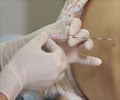A new study published in the journal Current Biology reveals that anesthetic drugs actually put the brain to sleep by turning on the important sleep circuits.

Kelz is himself an anesthesiologist, and he had long wondered just how accurate this notion of putting his patients to sleep really was. After all, there are important differences between natural sleep and the unconsciousness that comes with anesthesia. Even the soundest sleeper can be roused, while anesthetized patients maintain their slumber through the incredible insults that surgeries unavoidably bring.
In the new study, Kelz's team focused on a particular part of the brain, deep within the hypothalamus, which is known to increase in activity as one drifts off to sleep. Through a combination of direct electrical recording and other methods, they found that the anesthetic drug known as isoflurane boosts activity in this sleep-promoting brain area in mice. As further evidence of a connection, animals lacking the function of those neurons became more resistant to entering states of anesthesia.
The findings not only provide important clinical insights, but they might also go a long way toward reawakening our curiosity about anesthesia—to say nothing of the very mysterious nature of human consciousness itself.
"The development of anesthetic drugs has been hailed as one of humankind's greatest discoveries in the last thousand years," Kelz said. "Anesthetics are annually given to over 230 million patients worldwide. Yet as a society, and even within the anesthesia community, we seem to have lost our curiosity for how and why they work."
Advertisement















